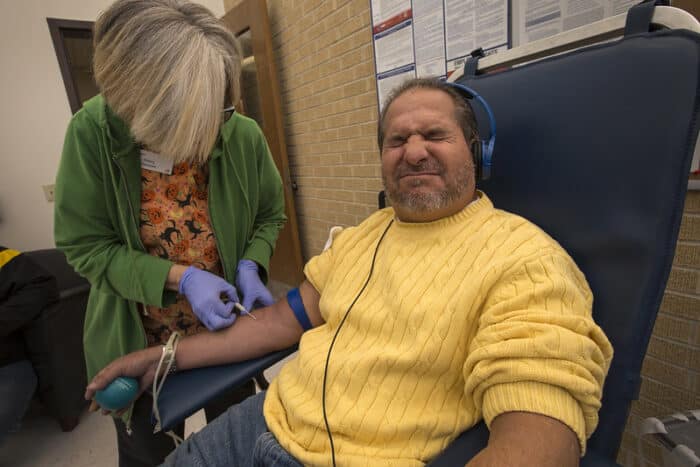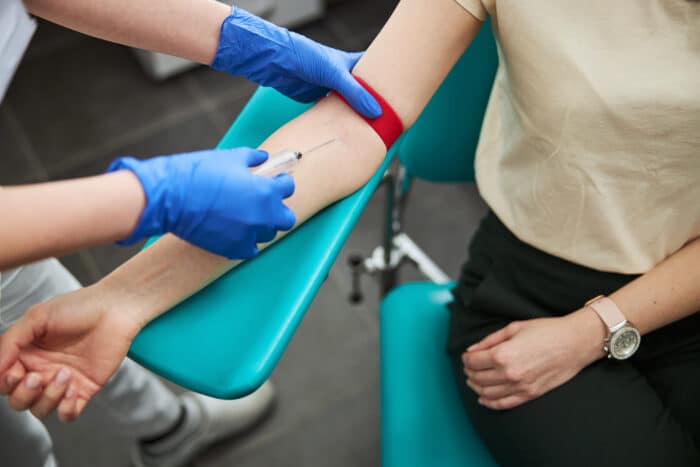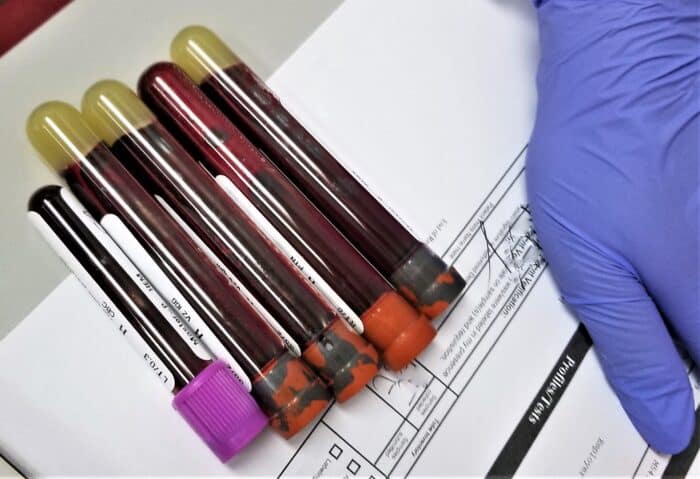If you’re an aspiring phlebotomist, someone looking to change your career, or are just interested in knowing more about phlebotomy, you’re in the right place.
If you’re here, you might already know how significant a phlebotomist is for a healthcare team. Their main role involves drawing blood from patients for diagnosis.
You might also be curious about phlebotomy certification, and whether it is necessary to get one.
We’re here to answer all such queries in detail.
So, let’s get started!
Also see: What is a Phlebotomist
What is a Phlebotomy Certification?
The first question that pops into your mind must be, what exactly is a phlebotomy certification?
Well, a phlebotomy certification is like an educational credential that you earn after you pass certification exams that are offered by legitimate and nationally recognized authorities. These authorities include the American Society for Clinical Pathology (ASCP), and the National Healthcareer Association (NHA).
Getting a phlebotomy certification might not be necessary across the country, but it is preferred by employers since it tells them how good you are at drawing blood from people for medical tests or other purposes. It’s a way to prove that you’ve had proper training, know how to do it safely, and can take care of patients well.
To get this certification, you usually have to finish a training program, do a certain number of successful blood draws, and pass a test. Once you’re certified, you can find better job opportunities in places like hospitals, clinics, or labs, and you might even earn more money.

Do You Want To Become a Phlebotomist? Check Out Free Phlebotomist Masterclass!
In our masterclass you learn:
- How to be a Phlebotomist faster…in just 2 months!
- Avoid student debt & driving to classes
- #1 thing employers want from Phlebotomists
- How to stand-apart & get a university certificate for a strong resume
How to Get Your Phlebotomy Certification
Now that you know how important a phlebotomy certification is, you might be curious about the process of getting one.
Here is a step-by-step guide on how to get your phlebotomy certification-
Step 1- Complete Your Formal Phlebotomy Education
Start by getting some form of phlebotomy training. Think of it as your “phlebotomy school” where you learn all about drawing blood safely. There are two main ways of completing your phlebotomy training, by getting a diploma or enrolling in an online phlebotomy training course.
Step 2 – Hands-On Clinical Training
While in school, you’ll also get to practice what you’ve learned by working with real patients. It’s like “on-the-job training” where you gain experience.
You will need to draw blood from a minimum of 10 patients to qualify for completing your clinical experience.
Step 3 – Apply for Certification Exams
Once you feel ready, you can apply to take a certification exam to become certified. This exam is offered by authorizations such as the National Healthcareer Association (NHA).
Clearing this certification exam will make you a certified phlebotomist. There are also some online phlebotomy certification courses that prepare you for national certification exams.
Step 4 – Exam Preparation
The next step is preparing for your exam. Before the big test, you’ll need to study hard. Use study guides and practice tests to get ready.
Step 5 – Take the Exam and Get Certified
Once you clear your exam, you’ll officially become a certified phlebotomist! It’s like getting a special license to work in the medical field, drawing blood and helping patients.
Conclusion
Getting a phlebotomy certification is a vital step toward a rewarding career in healthcare. Remember, it all begins with the right education and training program, followed by the successful completion of your certification exam.
Don’t forget to stay updated with the latest industry trends and guidelines, as phlebotomy is a constantly evolving field. With dedication, hard work, and a commitment to patient care, you can achieve your goal of becoming a certified phlebotomist and make a positive impact on healthcare. So, take that first step today, and soon you’ll be on your way to a fulfilling and meaningful career in phlebotomy.
Related Resources:
- How to Become a Phlebotomist
- Phlebotomist Salary
- Phlebotomist Skills
- Day in the Life of a Phlebotomist
- Phlebotomist Job Description
- Phlebotomist Duties
- Which Two Skills are Important for a Phlebotomist?
- Phlebotomist Degree
- Phlebotomy Externship
- Mobile Phlebotomist
- What Jobs Can I Get With a Phlebotomy Certificate?
- Phlebotomist Nurse
- Phlebotomist vs CNA
- Therapeutic Phlebotomy
- Certified Phlebotomy Technician
- Phlebotomy Classes
- Online Phlebotomy Classes
- Order of Draw Phlebotomy
- Phlebotomy Internship
- 4-Week Phlebotomy Classes Online
Related Articles
-
How to Be Successful in College in 2022 – 7 Simple Tips to Succeed
-
How Do Scholarships Work? Read This First…Truth is Shocking
-
7 Best College Majors 2024: What Should I Major In?
-
How to Choose a College – 10 Things You Must Consider in 2024
-
Why Go to College? Top 13 Benefits for Adult Students in 2022
-
Top 5 Best Alternatives to Community College for 2024








